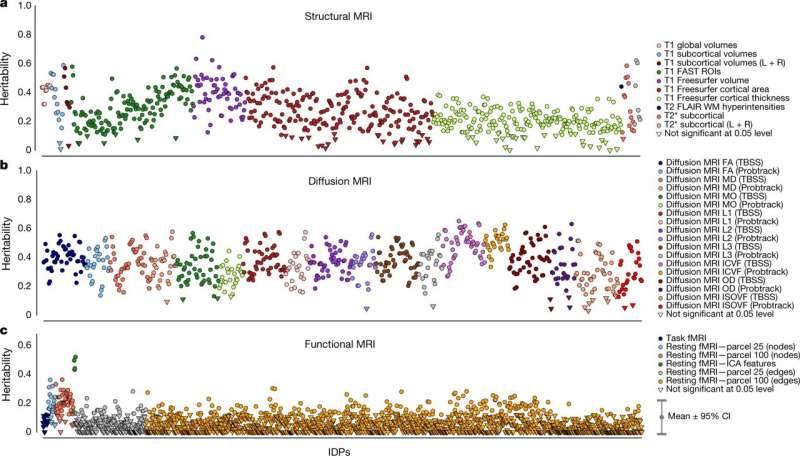

A team of researchers from the University of Oxford, Simon Fraser University and Genomics PLC, has conducted a genome-wide association study using the 2020 UK Biobank data release, using almost triple the discovery sample size of previous efforts. In their paper published in the journal Nature Neuroscience, the group describes using the UK Biobank to examine the association of common variants to 3,935 image-derived phenotypes (IDPs). Nana Matoba and Jason Stein with the University of North Carolina at Chapel Hill have published a News & Views piece in the same journal issue outlining some of the issues involved in using both MRI imaging and genetic association studies to identify neural disorders and also discuss the work done by the team on this new effort.
One of the major ways that scientists discover the genetic nature of certain disorders is by looking for genetic differences between people who do not have a given disorder and those that do. But such work is extremely difficult, considering that any two people have approximately 4 million genetic differences from each other. To help with the effort, researchers have set up databases of genetic information and other data about very large numbers of people. One such database is the UK Biobank—it currently holds health and genetic information for approximately 500,000 people across the United Kingdom. Scientists can use data in the Biobank for new research, and they can enter information back into it when new things are found.
Source: Read Full Article